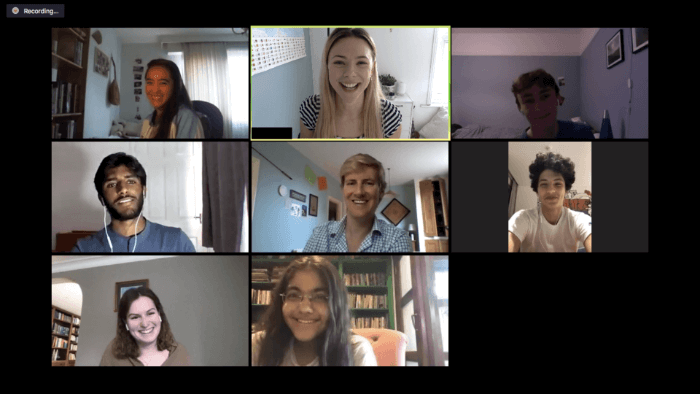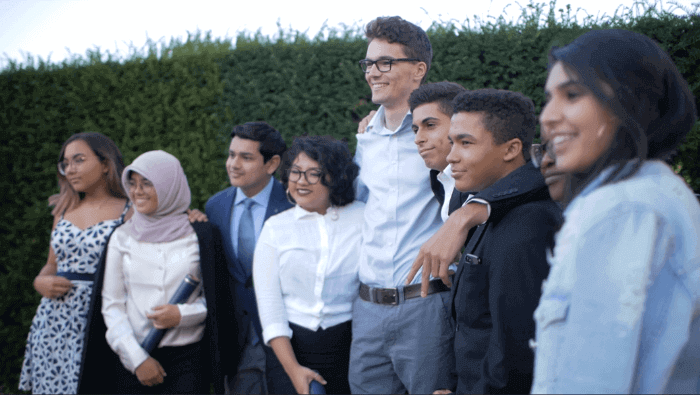The Once and Future Norm
Things must not have been as good as they seemed. Because we already know we aren’t going back to them – even once we can.
A collective casualty of Covid is our old way of life. Once Covid is resolved through vaccines, herd immunity, or accepted numbers of deaths in exchange for acceptable levels of functionality, we will not return to the pre-Covid world. The lifetime experiment of normality had only to be interrupted for a few weeks for us to glimpse a new way of life.
The father of sociology, Weber, argued that social institutions collectively socialise us. For example, a family centred around parents working jobs for money (as part of their own socialisation) produces children to take on similar attitudes towards similar jobs and produce similar children. According to Weber, families are an institution that produces the institution of workers. Businesses, in turn, not only produce goods and services, they pay workers, and in turn produce consumers. Consumers in turn use their surplus resources to produce new humans.
These intertwined roles are changing with consumerism being less central a way of life. Families may be less centralised upon employing parents and optimising the employability of the children. Suddenly families need to do more than reproduce themselves – they must reinvent themselves. Families tend to be microcosms of society – but the macrocosm of society is itself changing.
This will lead us into a post-Covid society in which we ask ourselves what roles we want the institutions of family, school, and work to play. Now that we know they can change from circumstance, we see we can also change them by choice.
We didn’t choose this plague. But it is making us choose everything else.
Now we see we do not automatically have to spend most of our time away from home and family. We do not have to sit in cars so that we may sit at a desk to then sit in that car. Our children do not have to learn by rote in an institution so they may get paid by another institution.
When our lifestyle suddenly changes, what we are socialised into – and what institutions do the socialising – changes. We ask what we can do from home, what we can access virtually, and how spending more time with loved ones is practical. Commuting is analog. Accessing is digital.

Pausing the Movie
When the lockdown took effect, the movie of life was paused; we asked ourselves whether we couldn’t write a new script. For years, we have had the technology to work and learn from home – but few took advantage because ‘it’s not the same as being there.’ But now, virtual learning, cloud-based cooperation and telecommuting are becoming norms. We are just as productive at home. Commuting is superfluous. Offices become obsolete the moment we stop going to them.
We only did it the old way because it was the only way; it was the only way because everyone else thought it was the only way. Our way of school wasn’t mindful. Our way of work wasn’t working. They were just normal.
Work and school didn’t stop because we stopped going to them. We were socialised into believing that working and learning were places, not people. The lockdown reveals that our activity and not where we do it defines our purpose. We have distanced from our locales and each other, but not our purposes, nor our creativity, nor our interconnectedness, nor our inspiration.
Time has replaced space as our metric of connectivity. By tutoring online, I now regularly have as many countries represented as there are students. The limiting factor is not distance, but time zones. Teaching a Western and Eastern hemisphere class may become the two-sectioned college course of the future.
What’s Next?
Having classmates and colleagues not only from different countries, but in them, adds to diversity of approach and skill-set. One student on a recent course I taught with Oxford Scholastica Online from the UK discussed the challenge of having lockdown lifted earlier than many scientists deemed safe. Another, from Ghana, countered that she was not under lockdown because people not working in her community meant people not eating.
Diversity of perspective is not only an enrichment but a necessity in a cosmopolitan curriculum with a cosmopolitan student body. Diversity breeds breadth; breadth fosters depth. Having a working group with all members from the same postal code might become akin to only looking at the paintings closest to the museum entrance.
Our place of focus may also change. Instead of depending on an office or classroom, communal work and study spaces (already popular in cities such as Berkeley) may offer hybridised models in which one need not stay home all day, but neither only have localised people working and learning together. Hence a team may comprise some people at home, some at an office and others in a communal space, all working together via cloud-based apps and technologies.
The Old and the New
The future of work and school may involve a hybrid of old ways and new. Future meetings and classes may comprise both bodies and avatars. This will allow us to complement limitations on group dynamics and skill-sets with fewer restrictions on recruitment and inclusion. Virtual functioning and identity may have gained a legitimacy they will not relinquish after the lockdown.
Meanwhile, will we entirely leave behind the hybridised role families have taken on? Children learning from their parents may not entirely disappear once schools resume. Parents need not entirely replace schools with homeschooling; but for the same reasons, neither can schools replace parents as teachers.
How long have how many lamented the lack of life skills in schooling? How children are sent into the world without knowing how to balance a budget, conduct an interview, have a conversation, cook a meal, perform CPR, grow a vegetable, make a life choice, define a life goal, find a home, make an apology, express a hidden need, approach a stranger, or teach others is an age-old lament.
The future of education may involve even one day a month in which the school curriculum is supplemented by the real-world pedagogy found at home — or a friend’s home. Is it so unrealistic to have our friends who are good at, for example, cooking or yoga or art, to host our children for a few hours to share their talents?
In a tribe, talents are communal knowledge stored in individuals and shared in gatherings. Before the Internet, we shared what we knew with whom we knew. The first Internet was a people who knew how to survive together. The traditions of apprenticeship, lineage, bartering and the having of traditions themselves may include lifelong learning less based on predetermined, standardised curricula and more on practical knowledge shared communally.

Theory and Practice
Though we parents have been stretched past our limits by providing both income and child care/education at home, this will change as society evolves to accommodate more complex, decentralised roles. Part of governmental education budgets may go towards parents teaching even monthly at home. Home-schooling families already receive government aid so that this practice is already happening; it could spread from a niche to a norm.
Further, we may not want to educate our children exclusively by outsourcing to a bureaucratic institution that will not teach what we were teaching. Parents may start homeschooling by attempting to mimic schools, but over time learn to share what they deem important. Now that our children have experienced a more personal and personalised curriculum, will they want to go back to the same ways?
During WWII, women who had been homemakers became crucial and capable factory workers in the war effort. Once the war was over, many women could not happily go back to their old roles because they were not their old selves. Once their contributions changed, so did their values — and identities. Similarly, once Covid is over, some parents may redefine teaching as part of our familial role. Education may then become decentralised to both the student-child and parent-teacher.
Concordantly, schools will be re-integrating students who will have learned how curricula and real-life interface. Before Covid, the twain may rarely had met; after Covid, they may never part. We finally have students learning through individuals instead of institutions. The institutions they return to will have to integrate more individuality from student and teacher alike, an individuality based on relating to material rather than regurgitating it.
For students, the experience of losing an institution may also lend a reckoning to how to relate to the domain of ideas. Biology, economics, philosophy, psychology, sociology and political science are no longer facts we memorise for an exam; they are now our reality. Students may now consider how economic policy affects their families’ capacities to keep their homes given furlough and helicopter money; how sustainability practices can cause or prevent the next pandemic; how science, as well as our cultural receptivity to it, can govern human behaviour, ethics and social policy; how psychology and sociology explain human cooperation with and resistance to quarantining and masks; how media studies considers the massive influx of contradictory information and agendas proliferating in the cyber sphere; how political science considers what governments may do with decreased privacy and increased surveillance rights. Ideas just got real. School will need to keep up.
Not the Future We Signed Up For
Our children know their future won’t be like our past. We will need to change how we teach as well as what. Parents and children, teachers and students, are all in a brave new world that is as much freed from unneeded traditions as it is missing the security borne of linking past with future.
Most cultures prior to ours believed time was not a line but a circle or spiral in which themes or events would repeat. The point was not to find unprecedented solutions but to recognise the sameness and naturalness of life’s challenges.
That stops sounding quaint once you see that is a more relevant, prescient approach to the pandemic than our culture’s story of the future forever yielding more growth, more technology, more more. Perhaps we are moving forward by going back to what is needed. We are leaving behind parts of our advanced paradigm because it has no place in the new world. We are teaching ourselves that the past, as well as the future, are entirely new.
Mitch Artman, a 3rd generation teacher, attempts to create the classes he wishes he had attended as a student. He teaches psychology, sociology, public speaking, political theory and literary theory. He lives in Oxford with his wife and twin daughters.
Further Reading:
- Read more from Mitch: The Lessons of Covid School
- Even more from Mitch: The Psychology of Success: How Can Students Harness Their Own Psychology To Maximise Their Potential?
- Are you learning from home at the moment? Here are our Five Tips For Productive Study At Home
What did you do during the quarantine?
If you’re looking for ways to expand your horizons from home, or want to spend time this summer learning more about your subject and preparing for a changing world, check out our Virtual Summer School – inspirational, live online courses for 12-18 year olds.